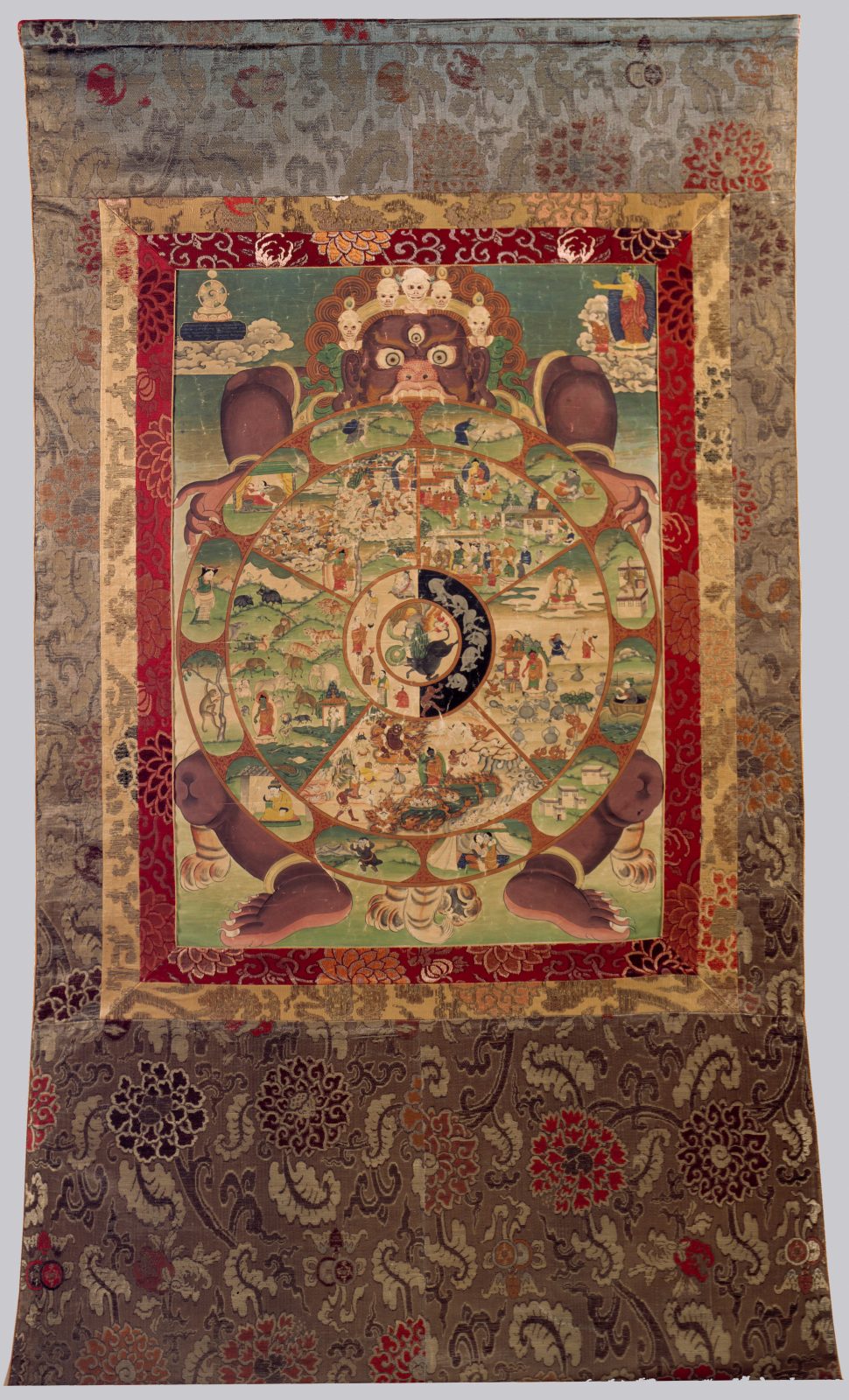

This week’s meditation session is led by Sharon Salzberg and the theme is Interdependence.

Wheel of Life, attributed to Lhadripa Rinzing Chungyalpa (b.1912, Sikkim - d.1977); Sikkim; c. 1930; Pigments on cloth; Rubin Museum of Himalayan Art; C2004.21.1
Classic Hindu philosophy teaches that all beings have a permanent Self that is eternal and everlasting. However, Buddhism teaches the opposite and that in fact nothing is eternal, in particular the notion of self. On the outer ring of the Wheel of Life appear 12 different scenes depicting the causes that lead us to believing in a permanent self. These are referred to as the Twelve Links of Dependent Origination.
While there is no first step since they continuously follow each other, the first step in the chain is ignorance, represented by a blind man walking with a stick. The next step is karmic formations, represented by a potter forming a pot out of clay. The next scene displays a monkey, representing our consciousness that constantly grabs onto objects of thought. After the monkey appears a boat representing the development of form. Next is a house with five windows and a door representing the five senses and consciousness. After consciousness comes contact experienced by the senses. This is represented by a depiction of physical contact. Contact causes feeling, represented by a man with an arrow in his eye. After feeling comes craving, shown here as a woman offering a man a drink. Clinging comes after craving as we hold onto those things that we find pleasurable and reject those things we find painful. Clinging ensures becoming, represented here by a couple making love. After becoming comes rebirth, represented by a woman giving birth. After rebirth ultimately comes the suffering caused by old age and death, here represented by either an old man or a corpse being carried up a hill.

Sharon Salzberg, Cofounder of the Insight Meditation Society in Barre, Massachusetts, has guided meditation retreats worldwide since 1974. Her latest books are Real Life: The Journey from Isolation to Openness and Freedom and Finding Your Way: Meditations, Thoughts, and Wisdom for Living an Authentic Life. She is a weekly columnist for On Being, a regular contributor to the Huffington Post, and the author of several other books, including the New York Times bestseller Real Happiness: The Power of Meditation, Real Change: Mindfulness to Heal Ourselves and the World, Faith: Trusting Your Own Deepest Experience, and Lovingkindness: The Revolutionary Art of Happiness. Ms. Salzberg has been a regular participant in the Rubin’s many on-stage conversations and regards the Rubin as a supplemental office.
Get the latest news and stories from the Rubin, plus occasional information on how to support our work.